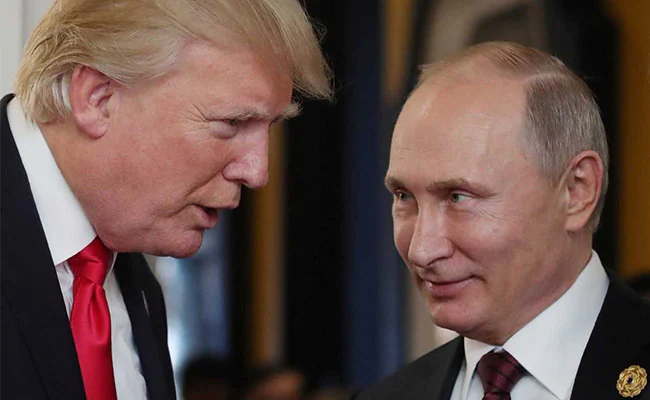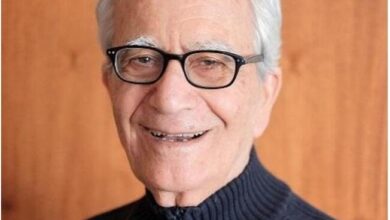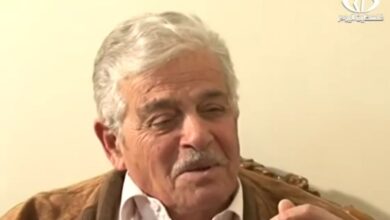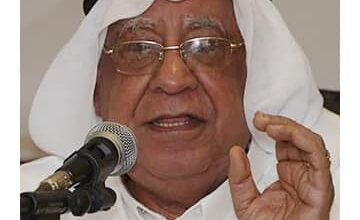Trump and Russian intelligence By Dr. Walid Abdel Hai
By Dr. Walid Abdel Hai Translated from Arabic by Ibrahim Ebeid

Trump and Russian intelligence
By Dr. Walid Abdel Hai
Translated from Arabic by Ibrahim Ebeid, February 25, 2025
When a historical and major country is led by a president with security experience like Russian President Putin, no scholar can rule out “security intelligence” in that president’s diplomacy. In contrast, if the leadership of a country is “an adversary of Russia” from someone whose experience is limited to financial gain and savage capitalism, the latter “can” be a potential catch for the former.
Perhaps observing the nature of US President Donald Trump’s orientations towards the countries of the whole world, including his country’s historical allies, makes his relations with Russia inconsistent with his general approach, as he threatens Europe, confuses NATO, wants to cut Greenland from Denmark, seizes the Panama Canal, wants to annex Canada, and threatens even his allies in the Middle East, and his position on China reaches the point of total confrontation. But against this image, which is frowned upon by the leaders of powerful countries such as Britain, France, and Germany, he stands cordially with Russia. He seeks to drag his allies into bargaining with Russia in Ukraine, in a way that suggests that the essence of what he advocates is European acquiescence to Russia.
Doesn’t all of the above call into question the paradoxes of Trump’s policies? Does he have intelligence links with the Soviet KGB (which became the Russian Federal Security Service), of which Putin was one of his geniuses throughout his spying on NATO for up to a decade and a half? Isn’t the pursuit of financial gain, building real estate empires, wrestling party contracting, and its vulnerability to femininity a “soft target” for the grand intelligence services?
If we add to all of the above the legal prosecutions that have been pursued by Trump since his emergence on the political scene, the most prominent of which were prosecutions related to allegations of “suspicious links with Russia” and Russia’s roles in his success the first time in the US elections, the matter becomes something worth following through dozens of references, books and press reports that exhaust the reader with their details.
Is what former Russian intelligence agent Yuri Shvitz said that Donald Trump was an asset or a Russian asset for 40 years and that it is a repetition of the scene of the British spy ring that passed secrets to Moscow during World War II and the early Cold War?
Craig Unger’s 352-page book “American Kompromat,” published in 2017, provides important details about Trump’s relations with Russia and his links with a dubious businessman, Jeffrey Epstein., The author clearly based his most prominent topics on the testimonies of Yuri Shvets, who was sent by the Soviet Union to Washington in the eighties, noting that many students are recruited and then pushed to important positions, something that happened to Trump himself.
Schwitz was a senior KGB officer, working under the cover of a reporter for the Russian news agency TASS during the 1990s, then moved to the United States permanently in 1993 and became a U.S. citizen, then worked as a corporate security investigator and was an accomplice to Alexander Litvinenko, who was assassinated in London in 2006.
The author explains how Trump linked to the Russians in 1977 through an affair with a Czech model named Ivana Zelenkova, who became Trump’s first wife, during which time Czech and Soviet intelligence coordinated to invest Trump in their activities. What raises the question is the speed of Trump’s transition to the world of wealth within 3 years to the extent of opening his first major real estate project, the Grand Hyatt New York near the Grand Central Station, and he got 200 televisions for the hotel from a Soviet immigrant, Semyon Kislin, who owned the Joy-Lud Electronics company, which is affiliated with the Soviet intelligence.
The stage of deepening the relationship begins – according to the book – in 1987, when the American Trump and his Czech wife visited both Moscow and St. Petersburg, during this period the direction of the Russian intelligence men turned to a new direction, which is to plant the idea of “entering the world of politics” in Trump’s mind after studying his permeable personality through its weaknesses, especially three qualities that formed the entrance to his recruitment, namely: Intellectual weakness, psychological dysfunction, excessive pleasure in flattery. (Curiously, these qualities coincide with the essence of the report of American psychosocial scientists who wrote a report on Trump’s psychological state in 2017), and the book notes that the focus of the KGB mainly was on a specific point: planting in Trump’s mind the idea that “he should be president of the United States, like him are the leaders qualified to lead the world, ” which tickled his pathological narcissism greatly.
As soon as he returned, he began to seek to deepen his relations with the Republican Party and began to hold meetings and electoral rallies in addition to publishing electoral advertisements in the most important American newspapers, especially the New York Times, and his announcements included questioning the feasibility of NATO and the relationship with Japan, “and communication with Russia remained until the 2016 elections came, in which Trump won and Russian planning was achieved, and Trump became president of the United States.
After his victory, which Russia was quick to welcome, a tidal wave of direct and implicit accusations of a possible suspicious relationship between Russia and Trump began, but the investigator in charge of the case, Robert Mueller, was unable to prove a conspiracy between members of the Trump campaign and the Russians, but the Center of the American Progress Action Fund, which stood behind the Moscow Project initiative, said that the Trump campaign team had contacts with the Russians (estimated at 272 contacts) and that they held meetings with Russian agents (estimated at 38 meetings).
But Mueller’s March 2019 report, which is in two parts of 207 pages, entitled “Report On The Investigation Into Russian Interference In The 2016 Presidential Election,” reviews in its first volume the factual findings of the Special Counsel’s investigation into Russia’s interference in the 2016 presidential election and its interactions with the Trump campaign. In the 2016 presidential election, while Section IV attempts to identify links between members of the U.S. government and individuals associated with the Trump campaign, Section V outlines the special counsel’s indictments.
The second volume of the report focuses on the president’s actions toward the FBI, as well as the president’s actions toward the special counsel’s investigation, and outlines the considerations that guided the investigation into the accusations.
In June, the Democratic National Committee and its cyber response team publicly announced that Russian hackers had hacked into its computer network. The release of the hacked material, which was quickly attributed by public reports to the Russian government, began in the same month.
Additional releases followed in July through WikiLeaks, with other releases in October and November. In late July 2016, shortly after WikiLeaks released the first stolen documents, a foreign government contacted the FBI about a May 2016 meeting with the Trump campaign’s foreign policy adviser, George Papadopoulos, who had suggested to the representative of that foreign government that the Trump campaign had received indications from the Russian government that it could help the campaign by anonymously releasing information damaging to Democratic presidential candidate Hillary Clinton. This information prompted the FBI on July 31, 2016, to open an investigation into whether individuals associated with the Trump campaign were coordinating with the Russian government in its interventionist activities, after which two federal agencies jointly announced that the Russian government “directed recent hacks of emails from American people and institutions, including US political organizations” to influence the results of interference in the US election process. After the election, in late December 2016, the United States imposed sanctions on Russia for its election interference, and by early 2017, several congressional committees were examining Russia’s interference in the election, and the executive branch, based on the above, made a decision in May 2017 to impose sanctions on Russia for its interference in the election.
Although the report contains pages whose contents have been obliterated in black (it seems that they include dangerous and confidential information), the issue of Russian interference was a serious issue enough that prompted the US government to take punitive measures against Russia, especially since the report reveals meetings and contacts between the Trump team, especially Kushner and others, and Russian parties or their proxies, and it is remarkable that the report distinguishes between addressing the issue based on (Conspiracy) and not based on (Collusion) – according to discrimination. The investigation therefore concluded that it did not establish that the communications described in Volume I, Section IV, above, amounted to an agreement to commit any substantial violation of federal criminal law — including the laws of foreign influence and campaign financing. Consequently, the office did not charge any individual associated with the Trump campaign with conspiracy to commit a federal crime or any other crime.
If we add to all of the above other parties that support the idea of a relationship between Trump and Russia (such as the Christopher Steele file, press reports, especially those published by the New York Times or the Washington Post in 2017, various reports from the FBI or some reports of congressional committees or pro-Trump figures or businessmen connected to him), it is worth stopping at it, it is unbelievable that all these data have no basis.
If Trump goes too far in his undisciplined decisions, or if he tries to pursue policies that seem biased towards “Russia”, the dissatisfaction of Europe or other American allies will not affect Trump with the size of his popular support that appeared in the elections, which means that the only way out for the deep state – if Trump persists – is to dig up files – such as his relations with Russia – Opens the door to legal accountability and re-prosecution (Impeachment), especially since President Nixon’s precedent enhances the possibility but does not make it certain. Maybe.





